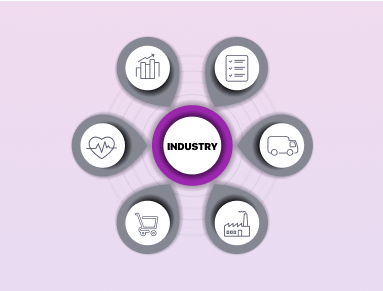ERP and Digital Transformation:
A Comprehensive Guide

Enterprise Resource Planning (ERP) systems have been a critical part of business operations for several decades. They help organizations automate various functions such as accounting, human resources, and inventory management. However, with the advent of digital technologies, ERP systems have become even more critical as they enable organizations to leverage data to make better decisions, improve efficiencies, and create new business models.
In this comprehensive guide, we'll explore the role of ERP systems in digital transformation, and how organizations can leverage these systems to drive innovation, efficiency, and growth.
Digital transformation refers to the integration of digital technology into all aspects of a business, leading to fundamental changes in how the business operates and delivers value to its customers. It involves the use of technologies such as cloud computing, artificial intelligence, the Internet of Things, and data analytics to create new business models, products, and services.
The Role of ERP in Digital Transformation
ERP systems are an essential component of digital transformation. They provide a single source of truth for all business operations, enabling organizations to make data-driven decisions. ERP systems can also integrate with other digital technologies such as cloud computing and data analytics to provide a comprehensive view of business operations.
ERP systems also provide a platform for automating processes, reducing manual effort and errors. This automation enables organizations to streamline operations, reduce costs, and improve efficiencies. Additionally, ERP systems can provide real-time insights into business operations, allowing organizations to identify opportunities for optimization and innovation.
Challenges of ERP in Digital Transformation
Despite the benefits of ERP systems in digital transformation, there are also several challenges organizations may face. These include:
- Integration issues: ERP systems need to integrate with other digital technologies such as cloud computing, data analytics, and artificial intelligence, which can be challenging and time-consuming.
- Data quality: The effectiveness of ERP systems relies on the accuracy and completeness of the data. Poor data quality can lead to inaccurate insights and decisions.
- Change management: Digital transformation can be a significant change for organizations, requiring changes in processes, procedures, and mindsets. Effective change management is critical to ensuring success.
- Security and privacy: With the increasing use of digital technologies, data security and privacy have become a significant concern. Organizations need to ensure that their ERP systems are secure and compliant with relevant regulations.
Conclusion
In conclusion, ERP systems play a critical role in digital transformation, enabling organizations to leverage data and digital technologies to create new business models, improve efficiencies, and enhance the customer experience. While there are challenges, effective change management and a focus on data quality and security can help organizations realize the benefits of digital transformation enabled by ERP systems.


